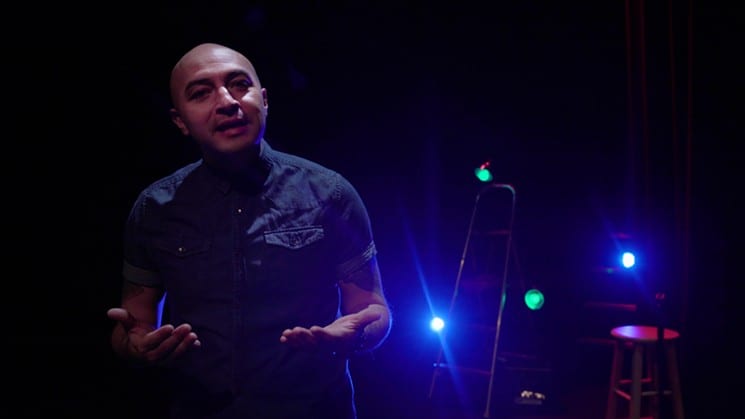
(photo credit: Ray Bailey)
by Jasmine Liu (Read the original.)
Theater and documentary collide in CO2020, the Boulder Ensemble Theatre Company’s latest production, which zeroes in on how Coloradans responded to the COVID-19 pandemic and the Movement for Black Lives in 2020. It’s the first time BETC has created a virtual documentary theater effort; the project, which runs online through April 18, has been almost a year in the making.
Some of the co-creators initially had doubts about the production: Would people be interested in watching an online play that reflects on one of the worst years in recent memory? Still, they knew how historic 2020 was, and decided that chronicling the community’s response to last year’s tremendous challenges would be an important effort.
The co-creators of the documentary interviewed fifty diverse Coloradans — including elementary-school students, activists, faith leaders, police officers and a mayor — to report on the “state of the state,” and wound up with 75 hours of tape.
The interviews included five standard questions: “What have you lost?” “How are you talking about racism?” “Is this a time of reckoning or awakening?” “What does America need most right now?” “Describe your community in five or less words.”
Some questions created natural themes that recurred in every conversation. Many interviews also extended beyond the five, depending on the participant’s role in the community.
John Moore, one of the six co-creators and a former Denver Post theater critic, explains that the project was a “great excuse to contact people and to be nosy.” Moore had been especially interested in interviewing Jukka Pawley, who led a makeshift ensemble of violinists in protesting the murder of Elijah McClain last summer in Aurora. Even as riot police pepper-sprayed the peaceful protesters, Pawley continued to lead the musicians in playing their instruments.
“The confrontation continued for hours, but the music never truly stopped,” Moore recounts.
Moore was at the violin vigil and recorded the scene as police descended on those who had gathered. “I was just sitting there thinking, this is like a scene out of Apocalypse Now,” he recalls. “It was horribly beautiful, and it summed up the whole chaotic disaster that the year 2020 was for me.”
After Moore interviewed Pawley, the young violinist became an integral creative collaborator on the project.
Interviewees include Jamilyah Nelson, who was released from prison in 2020; Mike Waid, the mayor of Parker; and Derrick Wilburn, the founder and executive director of Rocky Mountain Black Conservatives. Nelson, who began 2020 with a sentence of life without parole, saw that sentence reduced when a judge recognized her selfless efforts while in prison. Her immediate release was ordered at the onset of the pandemic.
Some interviewees were closer to home. Co-creator Heather Beasley interviewed high-schoolers who were in her daughters’ Dungeons & Dragons group.
“These stories subvert our assumptions about people, and about what a narrative of 2020 looks like,” Moore says.
The co-creators brainstormed how they could transform the material they had gathered into one coherent piece. Different creative teams took the project in various directions. One team, for instance, created a haiku series about racism.
“You’re constantly moving from one media to the next, experiencing things in different ways,” co-creator Stephen Weitz says. “It’s not like we didn’t know that people were going through these things. But hearing them and getting to spend time with their words was a really powerful experience for us as a group.”
He hopes that it will be similarly powerful for viewers.
